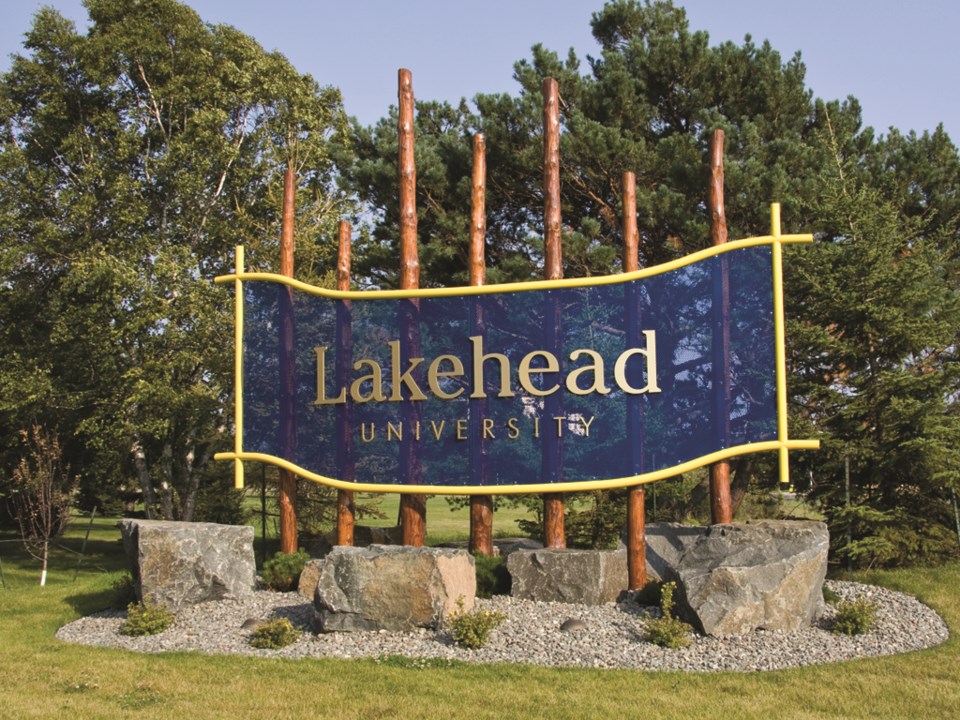THUNDER BAY — Students in First Nations across the region, and beyond, will get the chance for hands-on engineering experiences right at home when new mobile studios roll out later this year.
The "tinker trucks", as LU dean of engineering Janusz Kozinski calls them, are effectively engineering studios housed in modular shipping containers — where students can experiment with a range of equipment, like that used in 3-D printing, rapid prototyping, drone operation and other modern technologies.
It’s “so the students — and their parents and their friends and teachers — can tinker with the … latest engineering technology, play a little bit and be introduced to the beauty of engineering,” said Kozinski.
“Then we'll take it to another community and another community and another community.”
The tinker trucks are part of a new initiative by Lakehead University that aims to give more Indigenous young people opportunities and entry points into the engineering field, as First Nations, Métis and Inuit populations are vastly underrepresented in the field.
“We concluded that in our faculty of engineering, or in engineering in general in the country, the population of Indigenous students is absolutely minute — it’s less than one per cent,” said Kozinski.
“And on the other hand, engineering is becoming one of the key pillars of this century that … is changing not only what we do but how we live (and) who we are.”
He said that includes things like working with artificial intelligence, opportunities in clean energy, environmental remediation and sustainability, access to clean water and developing housing.
The university announced on Tuesday it has received $540,000 from the Natural Sciences and Engineering Research Council of Canada that will help improve outreach to primary and secondary school-aged Indigenous students in Northwestern Ontario, Manitoba and Saskatchewan. The goal is to address, what the university called in a media release, “the underrepresentation of Indigenous perspectives and knowledge in Canada’s engineering profession.”
The initiative will attempt to work directly with 2,000 youth each year and reach another 5,000 “through digital resources and platforms,” the university’s media release said.
Other programming, Kozinski said, will include an engineering festival, which could be hosted either at Lakehead or in other locations, which will allow young people, their teachers and their families to meet with industry representatives and entrepreneurs, as well as interact with Lakehead engineering students and their projects.
Kozinski said they’ll also invite youth to Lakehead to learn about the United Nations sustainable development goals from a Canadian representative at the UN and local professors, what they mean and how they could be implemented to communities’ benefit.
And on the digital front, Kozinski said, they’ll be creating a series of videos and other digital content aimed at social media to promote the impact Indigenous engineers have had and what the discipline is contributing.
The project is scheduled to begin later in 2025 and, initially, run over the next three years with the opportunity for its continuation. The university is working with PSI Technologies, a Saskatchewan-based engineering firm that specializes in mining, pavement and materials and Civiconnect, an Ontario-based organization that helps young people transition from education into the workforce through the development of work-integrated learning.
Kozinski said they’ve also partnered with Fort William First Nation, Gambler First Nation in Manitoba and the Ontario Society of Professional Engineers.
He added, on top of the funding from the research council, the initiative also includes support from Lakehead and its partners, in all totalling $1.74 million.
He said the goal isn’t to just increase enrolment of Indigenous engineering students at Lakehead, but other universities and colleges.
“That would be really a quantitative way to assess our progress,” Kozinski said.
